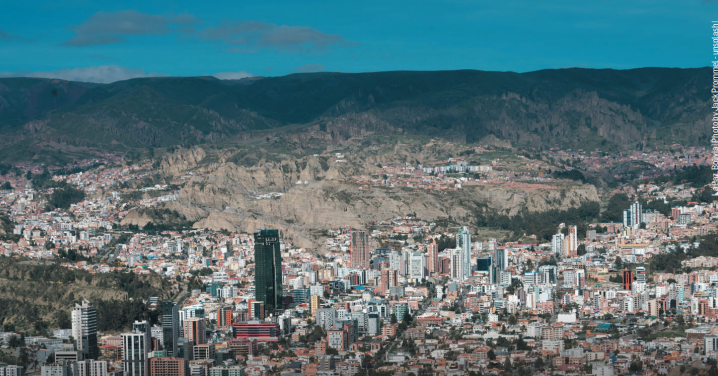Bolivia
Broadening Horizons for a Stronger Economy

Despite recent challenges, Bolivia is ready to diversify its economy into value-added mining, green energy, pharmaceuticals and agribusiness to reduce its dependence on fossil fuels, position itself as a strategic regional partner, and generate growth and shared wealth
Since colonial times, Bolivia has been renowned for its extraordinary natural resources. From the spectacular silver riches of Potosí, which produced around 60% of all the silver mined in the world during the 16th century and is considered the cradle of capitalism, to the prosperous tin mining of the 20th century, to the natural gas boom of the early 2000s, the exploitation of natural resources, particularly mining, has been a dominant feature of the Bolivian economy. Today, when recent economic woes have highlighted the need for diversification, infrastructure development and foreign direct investment, Bolivia is ready to redefine itself.
In energy matters, the country is eager to develop its potential with the exploitation of both traditional and alternative sources. Although natural gas production began to decline since 2014 due to lack of exploration, rising world prices and increased local demand, last July the government announced the discovery of a vast 1.7 trillion cubic feet mega field north of La Paz that could completely reverse this trend and start producing as early as 2026. However, to avoid past dependence on a single mining product, Bolivia intends to diversify with other minerals such as lithium and its derivatives, as well as copper, iron ore, steel and rare earth elements (REE), especially given the particularly large reserves of these technological minerals (with an estimated 23 million tons, Bolivia has the largest lithium reserves in the world) and their growing demand in international markets. On the other hand, the country aims to dramatically increase its share of renewables to 79% by 2030 by investing in photovoltaic plants, wind farms and hydroelectric projects, for which the government has already earmarked more than Bb. 3.3 billion and is looking for private partners to continue their development.
Bolivian agribusiness has also experienced significant growth in recent years, with an increase in the production of staple foods such as potatoes, cocoa, soybeans and their derivatives, the latter of 3.5 million metric tons in 2022, mostly for export; and new industries such as Amazonian fruits like açaí and copoazú. In the medium and long term, Bolivia expects the sector to focus mainly on technological innovation, greater infrastructure to make transportation and marketing logistics viable, and the creation of an agrofuels industry, particularly biodiesel plants that could even recycle household cooking oil into motor fuel and replace up to 60% of Bolivia’s diesel consumption by the end of 2026, according to government projections. Another sector that is experiencing a major boost is the pharmaceutical industry. Last year, the Bolivian government invested US$ 478 million in the construction of the state-owned company Laboratorio Industrial Farmacéutica Boliviana (LIFAB), which is currently developing the implementation of 13 new pharmaceutical industry plants (9 chemical-based industrial plants in the Santibáñez industrial park, and 4 based on natural plants in the municipality of Sacaba), as part of the government’s import substitution industrialization process.



